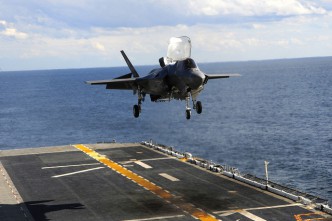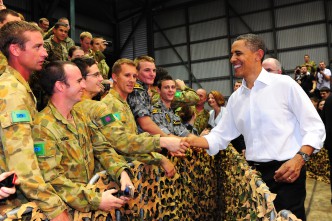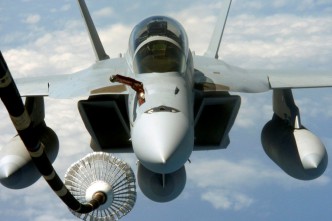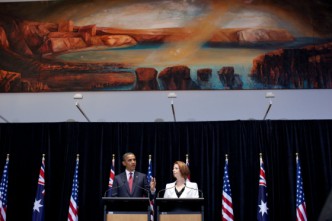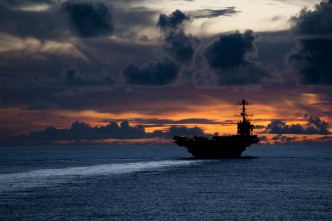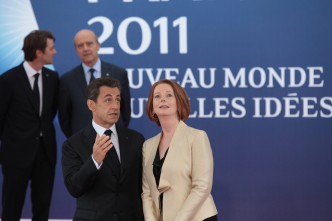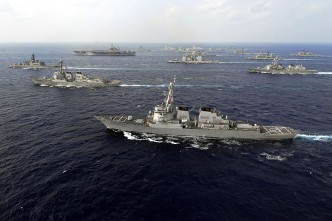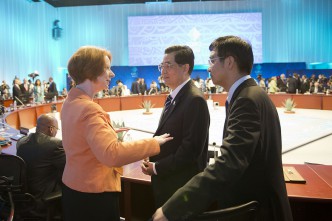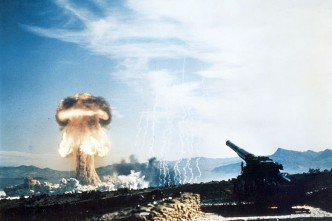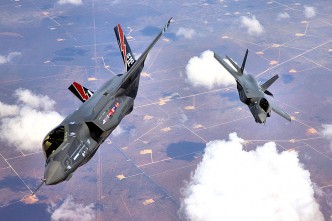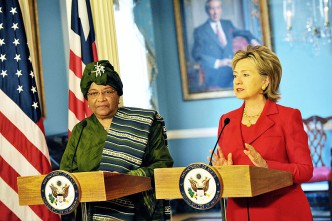Aircraft carriers have a habit of denying what they really are. In the 1970s, Britain’s new Invincible class carriers were officially christened ‘Through Deck Cruisers’, to reassure the nation’s bookkeepers that its Navy really had …
A provocative piece by American journalist Eddie Walsh is currently doing the rounds, making some bold claims about how Australians under 40 view the US–Australia alliance. Based on meetings with ‘dozens’ of Canberra diplomats, think …
Thirteen years on from the release of the 2000 defence white paper (D2000), we’re still waiting for some of the major ADF capabilities it announced to be realised. Given the time it takes to deliver …
Julia Gillard’s approach to foreign policy must be set beside that of Kevin Rudd. Indeed, Gillard’s place in history will be inextricably intertwined with Rudd on almost every level. The vote on September 7 will …
Soft power is back in vogue. The Shadow Minister for Foreign Affairs, Julie Bishop, stressed in the debate with Bob Carr at the Lowy Institute on Tuesday night that Australia needs to focus more on …
T.X. Hammes has a new article in The National Interest, ‘Sorry, AirSea Battle Is No Strategy’ in which he argues that war with China won’t be won by deep strikes. Distant, defensive deterrence and blockades …
Last weekend’s headlines were filled with what was being described as the most serious terrorism threat to Western targets in some years. As a consequence, the US closed 20 of its embassies in Middle Eastern …
Drill deeply into most of the conflicts and civil wars of the past thirty years and you will find, underneath all the political, ideological, ethnic and religious divisions, people fighting over access to food, land …
Ben Schreer’s recent post on China’s maritime dilemmas reminded us that we should always think about what capabilities are intended to achieve, and not make a fetish of the capabilities themselves. Beijing’s progress in A2/AD …
Julia Gillard defined herself early on in her leadership with the remark that foreign policy wasn’t her passion. A self-deprecating sense of humour isn’t always a political asset in a leader and this was the …
Amid the circus that was the final week of the 43rd Parliament, the Parliamentary Joint Committee on Intelligence and Security (PJCIS) quietly tabled its report on the Inquiry into Potential Reforms of Australia’s National Security …
Crispin Rovere and Kalman A Robertson suggest eliminating low-yield non-strategic nuclear weapons (NSNW) in ‘Non-strategic nuclear weapons: The next step in multilateral arms control’. I’m sceptical of their proposed solution—a Minimum Yield Threshold Treaty. Firstly, …
Last Thursday the Australian Strategic Policy Institute, in partnership with the Commonwealth Bank, launched its new International Cyber Policy Centre (ICPC). A packed audience of key public and private sector stakeholders, all with a direct …
Most Australians feel secure in our food supply; few of us are on the knife’s edge of survival or driven to extreme behaviour. The greatest apparent risk to most Australians’ food security is the inability …
The strategy behind China’s emerging naval capability is subject to considerable debate. Most of the commentary concentrates on the People’s Liberation Army Navy’s (PLAN) capability development. Some commentators argue that the PLAN has shifted its …
History will be kind to Julia Gillard. Take this is as a relative rather than a qualitative judgement. History will have to be kinder because it would be impossible to be as harsh as current …
From the late 1940s until the fall of the Berlin Wall, the two superpowers engaged in a standoff whereby each threatened the very existence of the other with tens of thousands of strategic nuclear warheads. …
Shocked and confused. That’s how the international community is reacting to news that a major Australian radiological security initiative has just been canned. The corridors of the International Atomic Energy Agency (IAEA) were abuzz with …
I discussed previously that force structure planning should take into account that new equipment projects have very long timelines—Andrew Davies’ post this morning explains clearly the downsides of getting the planning wrong. It might help …
The Prime Ministership of Julia Gillard raised important issues about the treatment of women political leaders in Australian society. Gillard’s impassioned ‘misogyny speech‘ was a defining moment of her leadership. In her resignation speech Gillard …


